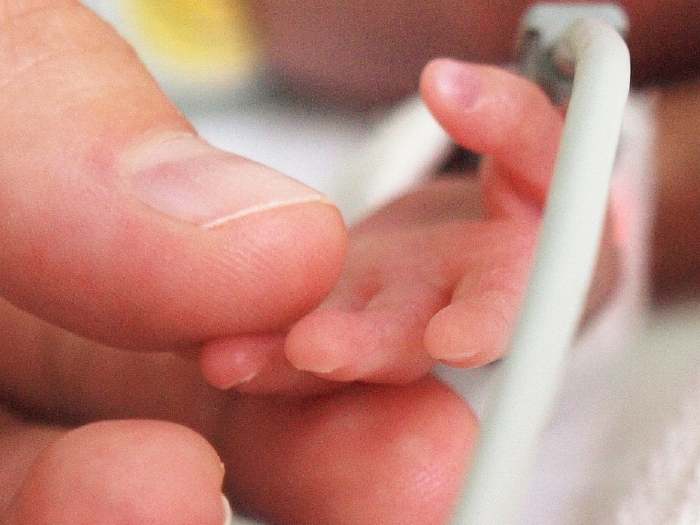Research suggests that patients and physicians should be aware of opioid use before elective operations such as hysterectomy and bariatric surgery.
7:00 AM
Author |

Surgery patients often go home from the hospital with a prescription for painkillers to take as they recover.
MORE FROM THE LAB: Subscribe to our weekly newsletter
But a new study suggests that doctors should also be cognizant of potential downsides related to patients taking such medicines before their operations.
People who received prescriptions for opioid painkillers in the months before elective abdominal operations had longer hospital stays, and a higher chance of needing follow-up care in a hospital or rehabilitation facility, than patients who weren't taking the drugs before they had the same operations, the study finds.
The extra care translated into higher costs for their post-surgery care — double or triple the amount, with higher opioid doses associated with higher costs.
The results are published in Annals of Surgery by a team from the University of Michigan Institute for Healthcare Policy and Innovation. They, and past research on the association between opioids and outcomes for other types of surgery, are enough to prompt the researchers to suggest that pre-operation opioid use should be considered a preoperative risk factor.
"We often pause when we are considering elective surgery with a patient, based on known risk factors such as smoking, anticoagulant use and overall medical conditions. These findings suggest that perhaps preoperative opioid use warrants the same awareness," says Jennifer Waljee, M.D., lead author of the study and a plastic surgeon at Michigan Medicine, U-M's academic medical center.
Options such as tapering down opioid doses and alternative pain relief approaches could be options prior to surgery, she explains.
But also, she says, "physicians should make a plan to manage the patient's pain during the perioperative period that takes into account their past opioid use." Past research has suggested that chronic opioid use may lead to tolerance and can increase sensitivity to pain, leaving patients more vulnerable after an operation.
Waljee and her U-M colleagues have launched a massive effort to help surgeons across Michigan prescribe opioids wisely and understand the special needs of patients who come to them already taking opioids. Called Michigan-OPEN, it has funding from the Institute for Healthcare Policy and Innovation and the Michigan Department of Health and Human Services.
About the new study
Before doing the new national study, the authors identified similar trends in Michigan hospitals using data from the Michigan Surgical Quality Collaborative, led by medical student David Cron and published in July 2016. In that study, 21 percent of patients used opioids prior to surgery, according to their medical records. They had a substantially higher risk of complications, readmissions and higher costs.
SEE ALSO: Why U.S. Doctors Love Opioids and Hate Marijuana for Chronic Pain
For the new study, the authors used national claims data drawn from private insurance companies through the Institute for Healthcare Policy and Innovation's repository from Truven Health MarketScan. Waljee's grant from the Agency for Healthcare Research and Quality funded the study.
They studied more than 200,000 middle-class Americans who had common operations — hysterectomies, bariatric surgery, hernia repair and reflux surgery — over a 42-month period, and who spent at least one night in the hospital.
About 9 percent of the patients had filled at least two opioid prescriptions within the 90 days before their operation, including at least one within a month before the operation. They tended to have more medical and psychological conditions than patients who did not take opioids before surgery.
The patients who had been prescribed opioids before surgery spent an average of an extra half a day in the hospital after their operations, even after the researchers adjusted for a wide range of co-existing factors such as medical conditions and demographic characteristics.
They also were more likely to end up back in the hospital or to go to a rehabilitation facility within 30 days of the operation, except for those taking the lowest-possible doses. These differences weren't huge: 4.5 percent of opioid users had a hospital readmission, compared with 3.6 percent of those who hadn't taken opioids. But they were enough to make a difference in cost.
In the first 90 days after surgery, those who had been taking opioids had medical costs three times higher than those who hadn't. The gap narrowed as time went on, but even at a year post-surgery, the pre-surgery opioid users had twice the medical costs — at about $25,000 — as those who hadn't been taking the drugs, who came in at an average of $12,113.
These data add to a growing body of evidence that shows that patients who take opioid painkillers on an ongoing basis use more medical care, and have higher medical costs, than those who don't.
"The bottom line is that preoperative opioid use is an important and potentially modifiable risk factor prior to surgery, and should be on surgeons' radar as well as the minds of primary care providers," says Waljee. "Coordinating care throughout the surgical period could improve clinical outcomes and the patient experience."

Explore a variety of healthcare news & stories by visiting the Health Lab home page for more articles.

Department of Communication at Michigan Medicine
Want top health & research news weekly? Sign up for Health Lab’s newsletters today!





